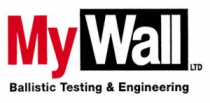Harvard's Wyss Institute partners with Cellectis to recode the human genome
Harvard's Wyss Institute partners with Cellectis to recode the human genome
Recode project will use Cellectis' TALEN gene editing technology to create first virus-resistant human cells for manufacturing therapeutics and developing new cell-based therapies
BOSTON and NEW YORK, May 1, 2018 /PRNewswire-USNewswire/ -- Today the Wyss Institute for Biologically Inspired Engineering at Harvard University and Cellectis (Euronext Growth: ALCLS - Nasdaq: CLLS), a clinical-stage biopharmaceutical company focused on developing immunotherapies based on gene-edited allogeneic CAR T-cells (UCART), announced that they will collaborate to further advance the Wyss Institute's efforts to recode the entire genome of cell lines derived from humans and other species, and to develop new tools and methods facilitating this goal. The cell lines would be engineered to resist debilitating viral infections while carrying out their normal functions, or even perform entirely new functions.
The Recode project lays the technical foundation to extensively and functionally modify existing genomes in cells and whole organisms, and aims to convert them into research tools as well as clinical and biotechnological products.
The collaboration was announced at the May 1 Genome Project-write 2018 Scientific Working Meeting, conducted by the Center of Excellence for Engineering Biology, as part of the first grand-scale, community-wide GP-write project to develop such ultra-safe cells.
Previously, the research group led by George Church, Core Faculty member at the Wyss Institute, Professor of Genetics at Harvard Medical School (HMS) and of Health Sciences and Technology at Harvard and the Massachusetts Institute of Technology (MIT), published on efforts to radically recode the bacterium E. coli's genome. The researchers reduced the number of codons - the sequence units in the DNA that encode the amino acids the bacterium's proteins are composed of - from 64 to 63. This caused the recoded bacteria to become resistant to most viruses and to be 'biocontained' in their intended laboratory environments since their survival can be linked to chemicals not found in the wild.
Building on these accomplishments, Church said, "the Recode project aims to create ultra-safe human cells that are resistant to infection with all viruses and prions. These cells and the technologies we are developing along the way will enable more effective ways to manufacture protein therapeutics, vaccines, cell therapies and transplantable organs."
Under the collaboration with Cellectis, Church and his team will be given access to the company's TALEN® gene editing technology. TALENs, short for transcription activator-like effector nucleases, are genome engineering enzymes that can introduce changes into the DNA code with high specificity and across an entire genome, and they can be multiplexed to make multiple changes at a time. "In the Recode project, our capabilities to edit genomes and invent new tools for high-level multiplexing of these efforts perfectly align with Cellectis' expertise and strengths. Cellectis' TALEN gene editing technology will contribute much to the success of this project," said Church.
All protein-coding DNA sequences in a cell's genome consist of triplet codons containing three of the four basic nucleotide bases known in shorthand as A, T, G and C. In addition, the beginning of a protein-coding DNA sequence is signaled by a START codon and its end with a STOP codon to enable the appropriate translation of DNA into the proteins' amino acid sequences. As most amino acids are redundantly encoded by two to six different codons, Church and his team seek to compress the codon usage for specific amino acids from six down to four codons.
To achieve this, the team will deploy sequence-tailored TALEN® enzymes to help modify codons at 400,000 locations across the protein-coding regions of the human genome. The lab can then delete the genes encoding the RNA molecules known as transfer RNAs that the cells previously required during their protein synthesis to add amino acids corresponding to the eliminated codons.
"We are looking forward to collaborating with the Wyss Institute and George Church's group on this very exciting Recode project using Cellectis' technology to recode the entire genome of human and other species cell lines," said Dr. André Choulika, Chief Executive Officer of Cellectis. "The precision, the performance and the flexibility of TALEN® technology makes it the optimal gene editing platform for such a cutting-edge project."
This simplification of the protein-encoding portion of the genome may prevent viruses, which need the full repertoire of codons to produce their own proteins, from hijacking the host cells' protein-synthesizing machinery. It may also allow researchers to re-purpose eliminated amino acid codons for the incorporation of nonstandard synthetic amino acids that can enable new protein functions and provide a reliable means of containing recoded cell lines in laboratory or industrial environments.
"The Recode project and partnership between synthetic biologists at the Wyss Institute and Cellectis represents a major new application area for genome engineering that could open up entirely new paths for prevention of infectious disease, as well as for biomanufacturing, organ transplantation, and regenerative medicine," said Wyss Institute Founding Director Donald Ingber, M.D., Ph.D., who is also the Judah Folkman Professor of Vascular Biology at HMS and the Vascular Biology Program at Boston Children's Hospital, as well as Professor of Bioengineering at the Harvard John A. Paulson School of Engineering and Applied Sciences.
PRESS CONTACTS
Wyss Institute for Biologically Inspired Engineering at Harvard University
Benjamin Boettner, benjamin.boettner@wyss.harvard.edu, +1 617-432-8232
Cellectis
Jennifer Moore, VP of Communications, media@cellectis.com, +1 917-580-1088,
Caitlin Kasunich, KCSA Strategic Communications, ckasunich@kcsa.com, +1 212-896-1241
IR contact:
Simon Harnest, VP of Corporate Strategy and Finance, simon.harnest@cellectis.com, +1 646-385-9008
MULTIMEDIA CONTACT
Wyss Institute for Biologically Inspired Engineering at Harvard University
Seth Kroll, seth.kroll@wyss.harvard.edu, + 617-432-7758
About the Wyss Institute for Biologically Inspired Engineering at Harvard University (http://wyss.harvard.edu). The Wyss Institute for Biologically Inspired Engineering uses Nature's design principles to develop bioinspired materials and devices that will transform medicine and create a more sustainable world. Wyss researchers are developing innovative new engineering solutions for healthcare, energy, architecture, robotics, and manufacturing that are translated into commercial products and therapies through collaborations with clinical investigators, corporate alliances, and formation of new startups. The Wyss Institute creates transformative technological breakthroughs by engaging in high risk research, and crosses disciplinary and institutional barriers, working as an alliance that includes Harvard's Schools of Medicine, Engineering, Arts & Sciences and Design, and in partnership with Beth Israel Deaconess Medical Center, Brigham and Women's Hospital, Boston Children's Hospital, Dana-Farber Cancer Institute, Massachusetts General Hospital, the University of Massachusetts Medical School, Spaulding Rehabilitation Hospital, Boston University, Tufts University, Charité - Universitätsmedizin Berlin, University of Zurich and Massachusetts Institute of Technology.
About Cellectis. Cellectis is a clinical-stage biopharmaceutical company focused on developing a new generation of cancer immunotherapies based on gene-edited T-cells (UCART). By capitalizing on its 18 years of expertise in gene editing - built on its flagship TALEN® technology and pioneering electroporation system PulseAgile - Cellectis uses the power of the immune system to target and eradicate cancer cells. Using its life-science-focused, pioneering genome engineering technologies, Cellectis' goal is to create innovative products in multiple fields and with various target markets. Cellectis is listed on the Nasdaq market (ticker: CLLS) and on Euronext Growth (ticker: ALCLS). To find out more about us, visit our website: www.cellectis.com
Talking about gene editing? We do it. TALEN® is a registered trademark owned by Cellectis.
Disclaimer
This press release contains "forward-looking" statements that are based on our management's current expectations and assumptions and on information currently available to management. Forward-looking statements involve known and unknown risks, uncertainties and other factors that may cause our actual results, performance or achievements to be materially different from any future results, performance or achievements expressed or implied by the forward-looking statements. Further information on the risks factors that may affect company business and financial performance, is included in filings Cellectis makes with the Security Exchange Commission from time to time and its financial reports. Except as required by law, we assume no obligation to update these forward-looking statements publicly, or to update the reasons actual results could differ materially from those anticipated in the forward-looking statements, even if new information becomes available in the future.
View original content with multimedia:http://www.prnewswire.com/news-releases/harvards-wyss-institute-partners-with-cellectis-to-recode-the-human-genome-300639519.html
SOURCE Wyss Institute for Biologically Inspired Engineering at Harvard University




